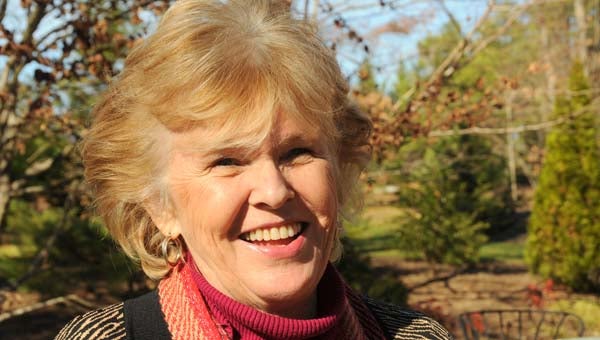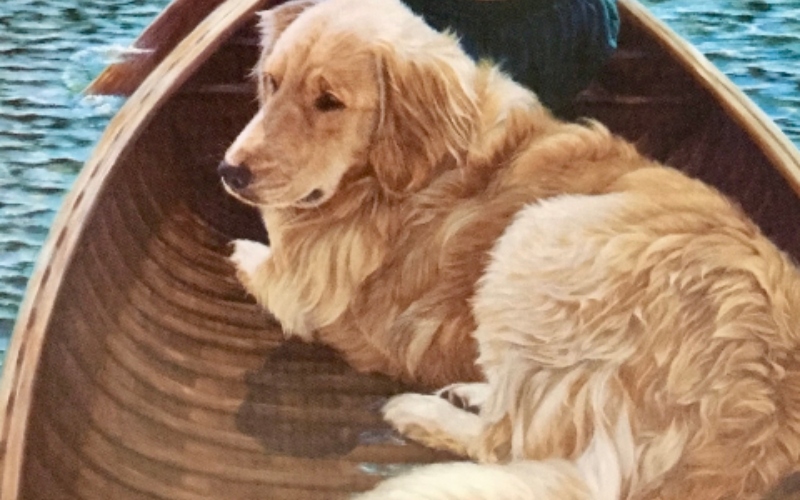Anne Vance: A career offering addicts hope, treatment and recovery around the world and in Mill Spring
Published 3:52 pm Thursday, June 25, 2015

By Susan McNabb
Photograph by Kirk Gollwitzer
Life in Our Foothills, February 2015
After more than 30 years of working in the addiction treatment field, Anne Vance has just retired as the CEO of Pavillon, a drug and alcohol addiction treatment center in Mill Spring, and has no idea what’s next for her.
“What am I going to do?” she asks with a laugh. “Hobbies? What’s a hobby?” Then she gets a little more serious and considers the thought of having “the freedom to sit and read a book all day,” and her eyes light up when her thoughts land on “travel.”
Trending
Vance has spent a great deal of time traveling in her career, and there are still places she’d like to see. Her work has taken her to Buenos Aires, Patagonia, London, and the Bahamas, just to name a few places.
She began her life in Toronto, and attended the University of Toronto and Wellesley College, where she studied nursing. She met her husband, Jack, a radio producer—also from Toronto— while he was working at CBC. After starting their family—having three boys close in age—the Vance family moved to Los Angeles, but Jack hated freeways and they soon moved to Palm Desert after visiting some friends there. Vance got a job as head nurse at Desert Hospital where an alcohol treatment center was opening. She went back to school for specialized training at Hazelden and the Johnson Institute treatment centers in Minnesota, and at St. Mary’s Hospital in Illinois.
While Vance was furthering her training, the head of the Eisenhower Medical Center back in Rancho Mirage, Calif., Dr. Joe Cruse had a dream of a freestanding residential unit for the treatment of alcohol and drug addiction. He approached Betty Ford, who was on the board at Eisenhower, asked for the use of her name, and opened the Betty Ford Center. Cruse offered Vance a job, and at first she said no.
Vance went back to school again—this time at Chapman University in Orange, Calif., and when Cruse approached her a second time, she said yes.
Vance considers her 11 years at the Betty Ford Center her training ground where she worked under her mentor, Dr. James West. Treatment centers similar to the Betty Ford Center began to open all over the world, and Vance eventually left to help build centers or renovate facilities that had already opened in Stockholm, Finland, Calcutta, Geneva, Tokyo, and Mazatlan.
Vance then settled in London where she set up a consulting business with the European Association for the Treatment of Addiction (EATA). Her family was still in California—now in La Jolla—and her three boys were in college at the University of California at San Diego. Jack was freelancing, producing documentaries. Vance traveled between California and England, and was doing some consulting in San Diego when she got a call from the EATA and was offered an opportunity to help all treatment centers in the United Kingdom write policies and procedures in order to get accreditation so the centers would be reimbursed for treatment.
Trending
Vance helped set standards in treatment centers in Ireland, Scotland, and England, and it was at this time— in the mid 1990s—that Vance met Eric Clapton who was doing peer counseling in a London treatment center. Clapton wanted to partner with Vance to open a center to treat the islanders in Antigua. Clapton and Vance set up a 36-bed center called Crossroads Centre Antigua, hired a staff of international clinicians and an Antiguan medical staff, and were soon treating not only Antiguans, but patients from all over the world. The location proved to be a challenge due to horrific hurricanes, but the center is still standing today, funded by Clapton who raises funds by auctioning his guitars in London, Los Angeles and New York.
Jack joined Vance in Antigua until she left in 2001 as CEO and president of Crossroads and moved back to La Jolla. Exhausted from her life in Antigua, Vance took a year off, but then a call came in from Bermuda. Vance was off again to set up a treatment program at Fair Havens—a center for women and children, but the program lost its government funding and became a halfway house.
While in Bermuda, living with Jack in what Vance calls an “idyllic little cottage by the sea,” Vance got a call from a headhunter in North Carolina. Vance flew here to see Pavillon, a treatment center she knew nothing about. Vance was immediately struck by the beauty of the facility’s 141-acre property in Mill Spring, and was offered the position of CEO.
At the time, Pavillon was struggling, and the first thing Vance did was establish a line of credit with the Bank of America in Tryon that allowed the facility to build from there. Vance brought in new staff and board members and turned things around within a year. The following year, Pavillon earned CARF (the Commission on Accreditation of Rehabilitation Facilities) accreditation, which it has maintained since.
In the 12 years Vance served as CEO at Pavillon, the center gained national recognition for its residential and outpatient treatment, and Vance introduced the Children’s Educational Program for children of residential patients and for at-risk children in Western North Carolina.
Vance led the facility in its largest expansion, introducing outpatient services in Columbus and Greenville, and opening two sober living residential homes in Mill Spring and Greenville.
On her watch, Pavillon also became one of the first centers to implement a nicotine addiction treatment program, and Vance made the Pavillon campus completely smoke-free.
Now that Vance has retired and faces new decisions about her future, she reflects, “You don’t work in the treatment field as long as I have and just walk away completely.” She and Jack will stay at their home in Landrum, and she intends to continue to be an advocate in the community. She’s also looking forward to traveling and facing her next challenges.
“It’s kinda scary,” she jokes about suddenly finding herself with so much free time. “Work consumed me,” she says, but there’s no doubt she’ll find more worthwhile adventures out in the world. •





